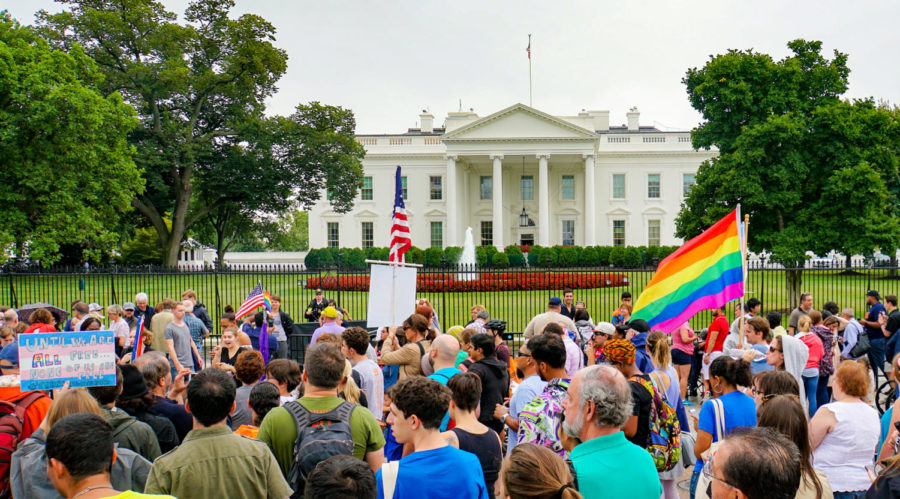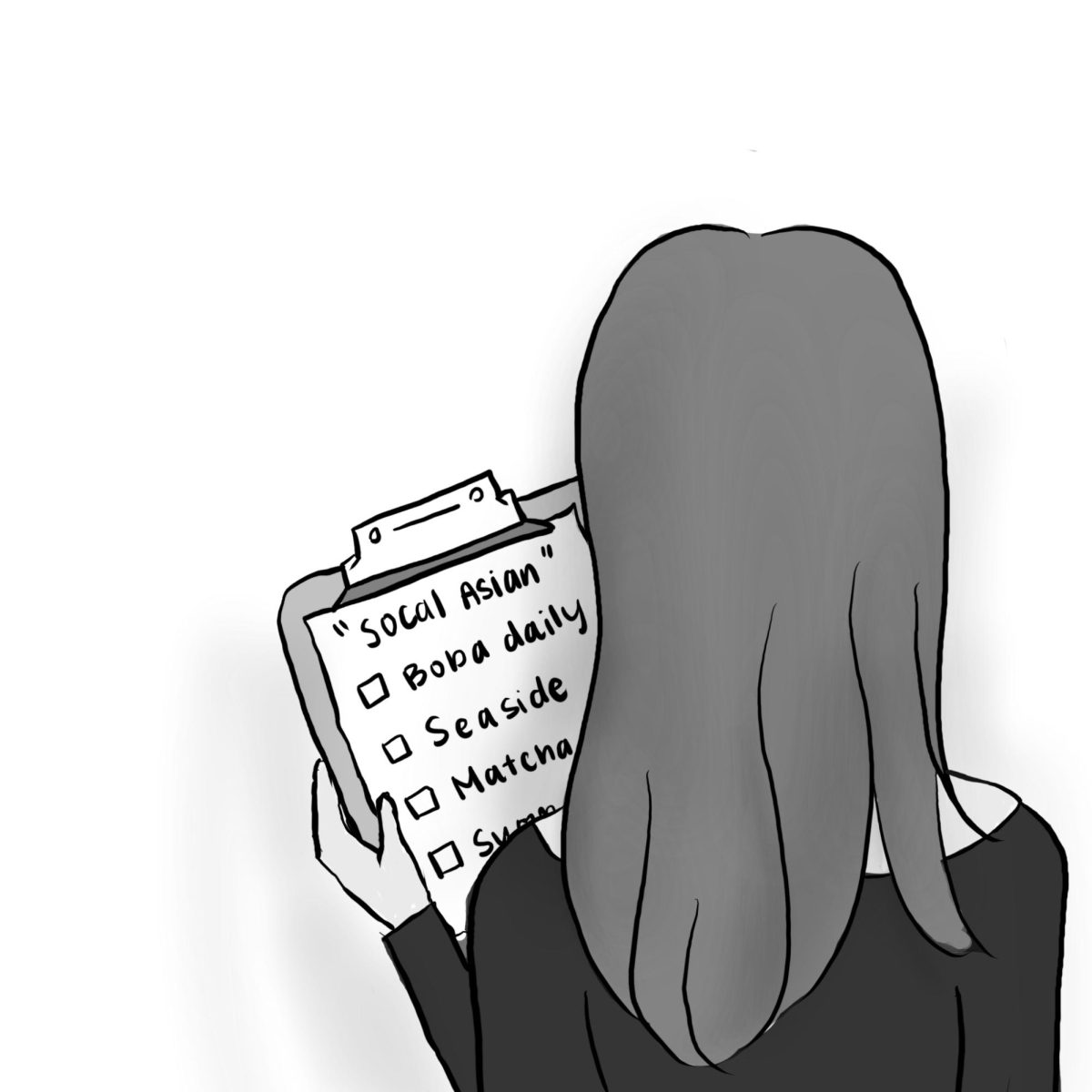Ramifications of anti-LGBTQ legislation
A perennial protest | Protestors gather outside the White House in 2017 after the Trump administration’s reversal of an Obama-era policy that allowed transgender people to openly serve in the military.
May 2, 2022
A new wave of bills targeting LGBTQ people has begun to flood state legislatures in 2022, with the latest being two bills colloquially known as “Don’t Say Gay” laws in the states of Alabama and Florida. These two laws forbid schools from teaching children about sexual orientation or gender identity until the third grade, with warnings sent home to parents each time a class may touch on the subject of LBGTQ people.
This treatment of queer people as separate from “normal” heterosexual people is nothing new to the United States, which has long harbored such laws in various forms, but many of those laws were struck down after the landmark Supreme Court case Obergefell v. Hodges ruled that the right to marriage extended to same-sex couples under the Equal Protection clause of the 14th amendment.
The reemergence of these laws, which come alongside a myriad of other anti-queer legislation, such as bans on transgender females from competing in women’s sports and the outlawing of hormone replacement therapy for youths, are not simply an election season trend for Republicans competing with each other to pass the most reactionary laws they can. They are concrete steps taken by governments to ostracize queer people from participating in society.
There is nothing inherently radical or life-altering about being queer. The old liberal adage that all are created equal seems to apply to all gender identities, as the romantic and sexual lives of all people are tied to the same institution of marriage. In practice, however, laws targetting LGBTQ individuals, such as those against sodomy and crossdressing, have thrived for centuries in America, and such laws continue to exist in different phrasings in Alabama, Florida, Idaho, Kansas, Louisiana, Michigan, Mississippi, North Carolina, Oklahoma, South Carolina, Texas and Utah. Queer people exist in a constant state of illegality in these parts of America, and that illegality makes queerness both an expression of romantic and political desires.
Regrettably, that same expression has made queerness a perpetual target of politicians that seek to portray it as a villain to blame for all sorts of malaises, such as “cancel culture” and “woke education”. It is important to understand that the current politicization of queerness is not due to a “queer agenda.” Queer people have one political interest: to be allowed to exist in the same capacity as cisgender heterosexual people. In countries like the U.S., where old social taboos and superstitions about queer people are being eliminated, it is disheartening to see an onstensibily tolerant and unbiased legal system sink again into categorizing queerness as an unforgivable deviancy.










